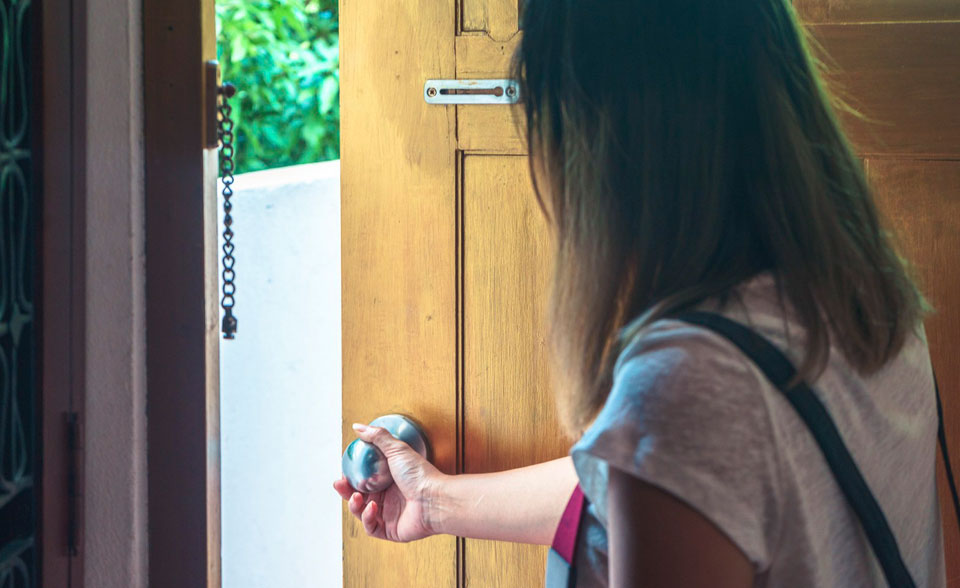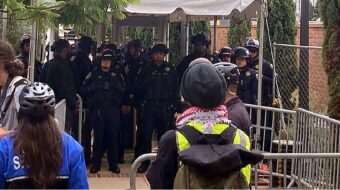
As the California legislature rushed to wind up a COVID-compressed session before a midnight Aug. 31 deadline, Governor Gavin Newsom, legislative leaders, and legislators who had fought throughout the year for much stronger protections announced they had reached a compromise to significantly protect tenants impacted by the pandemic from eviction for nonpayment of rent.
The new measure, Assembly Bill 3088, was introduced by a team of legislators including Assemblymember David Chiu, D-San Francisco, who had authored a much farther-reaching measure, AB 1436, in February.
So it could immediately go into effect before the September 1 expiration of the California Judicial Council’s statewide moratorium on evictions and foreclosure filings, the new bill had to pass both the Assembly and the state Senate by two-thirds majorities. Gov. Newsom announced late on Aug. 31 that he had signed it.
Among AB 3088’s key provisions,
- Between now and the end of January, tenants must pay at least a quarter of their rent to prevent eviction, and landlords could sue in civil court to get unpaid rent. In February, tenants must start paying full rent again, and any who had failed to pay a quarter of their rent up to that point could be evicted.
- In order to qualify for the bill’s protections, tenants must swear under penalty of perjury that they are experiencing pandemic-related hardship, and if they earn 130% or more of a county’s median income, a landlord can demand proof, such as layoff or wage-cut notices from an employer.
- Instead of the traditional three-day notice, landlords must now issue a 15-day notice to evict.
The new measure represents a compromise achieved after weeks of negotiations between housing activists demanding a statewide moratorium on all evictions during the pandemic and property owners who contend they can’t manage without collecting the rent they are owed.
Calling AB 3088 “an imperfect but necessary solution,” Chiu said he is distressed that the bill will not halt all evictions.
His earlier AB 1436 would have extended eviction moratoriums until California was no longer in a state of emergency. It also included extra time for landlords and homeowners to pay their mortgages – a provision totally missing from the new bill.
In a press release, California Apartment Association CEO Tom Bannon applauded the governor and legislature for “advancing legislation with protections for tenants truly harmed by COVID” while evicting those who “choose to game the system instead.”
But tenants’ organizations expressed their great disappointment over the failure to achieve the much stronger protections in AB 1436.
“AB 1436 … supported by a broad coalition of tenant groups, organized labor, and California mayors, would have prevented eviction for inability to pay rent in full for up to a year after the end of the COVID-19 state of emergency,” the statewide coalition Tenants Together said after the agreement was announced, but before the new bill was passed and signed. “Combined with a lack of regulation over all other types of evictions, these issues will likely lead to a large wave in evictions and mass displacement of vulnerable tenants who are disproportionately Black or Latinx.”
The Western Center on Law & Poverty, which had joined with the California Rural Legal Assistance Foundation to sponsor AB 1436, called the protections in the new bill “critical,” and urged that it be passed and signed.
However,” the Center said, “AB 3088 is only part of the solution … We still need a long-term solution to the pandemic’s financial consequences for tenants, small landlords, and affordable housing providers. Our organizations are committed to working with stakeholders, the legislature and the governor to ensure that new legislation to provide the long-term fix is ready to be enacted by the end of January.”
The Alliance of Californians for Community Empowerment (ACCE) Action had fought hard alongside housing activists throughout the state, for strong anti-eviction protections, and just before the new bill was finalized, had pressed the governor to implement a plan “to prevent a tsunami of evictions that would do tremendous harm to millions of people” throughout the state “for years to come.”
After 3088 passed, ACCE Action said it contained “some important protections from the original bill.” The organization called it “a significant step towards keeping families in their homes,” but added, “ACCE along with our members will continue to put pressure on legislators and the governor until our demands are fully met.”
Housing activists around the state are now looking forward eagerly to the start of the 2021-22 legislative season.












Comments